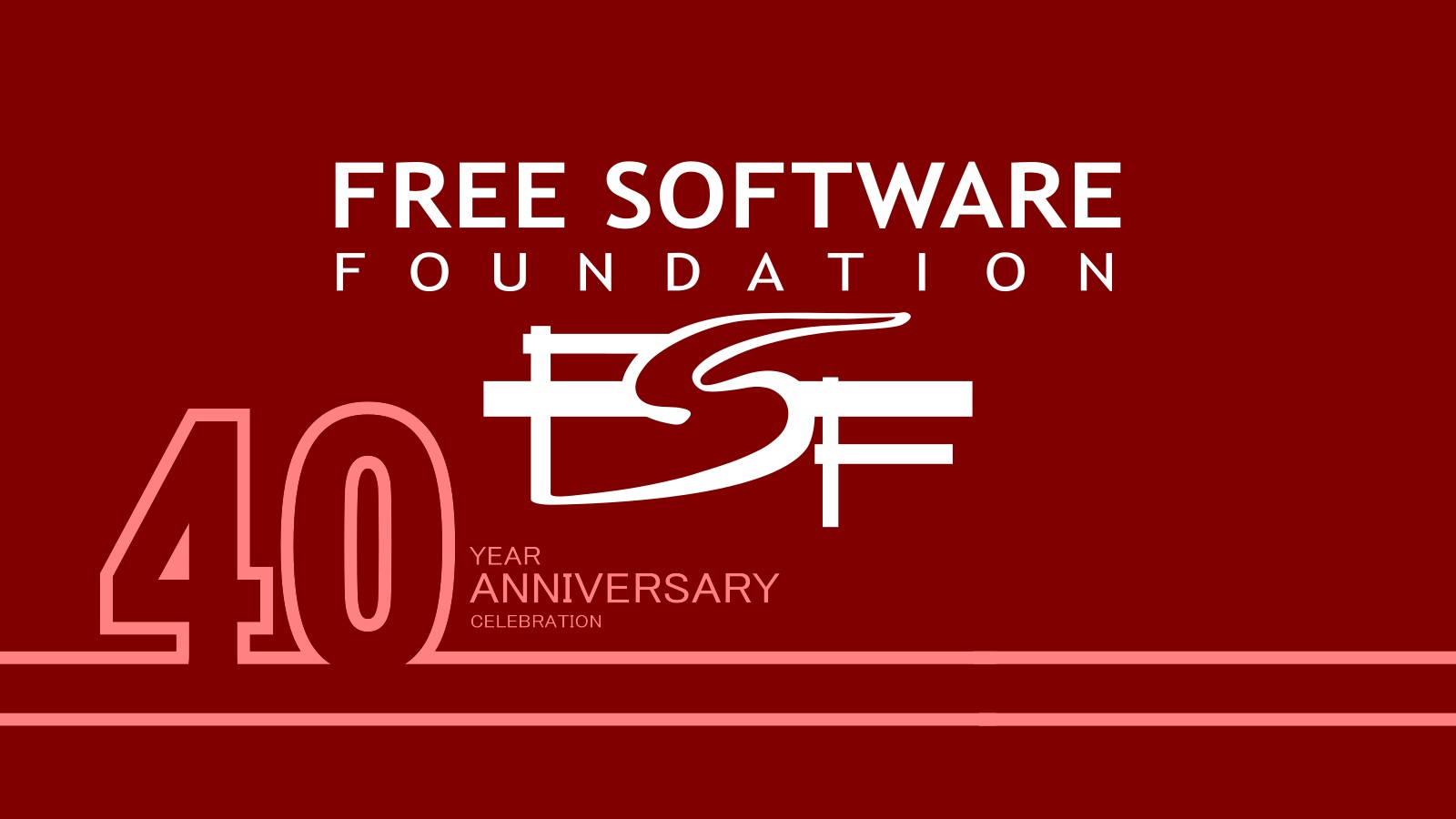The project, developed in partnership with veteran free software developer Rob Savoye, aims to create a fully free and open mobile platform, from the firmware to the operating system.
Very cool
Damn. Software has existed 40 years now?
Not only that: it was big enough to get mad at 40 years ago already.
40 years ago was 1985.
The first version of Microsoft Windows was released at that time, as an GUI overlay of MS-DOS.
https://en.m.wikipedia.org/wiki/Microsoft_WindowsMS-DOS was released in 1981 as a corporate locked down OS, that he was aggressively pushing to lock down the PC market.
https://en.m.wikipedia.org/wiki/MS-DOSAt the same time HP, IBM, and other early computing megacorps were pushing their own locked down OS’s that were partially built off the free software work of the universities.
One example is HP-UX, which was released in 1984 and was a proprietary implementation of Unix System V, which itself was a commercial product from AT&T. https://en.m.wikipedia.org/wiki/UNIX_System_V
Things were extremely expensive and locked down back then, and we were just getting to the point where computers were becoming common in people’s homes. Most decently funded schools had dedicated computer labs at this point.
gimme gimme
Please god, help me find my keys! Tell St. Anthony I need my keys!
Also could you make this Foss phone be real and reasonably priced below the cost of a gaming PC?
You may choose 1
Found them! Where’s my Linux phone?
Linux mobile phones are the fusion power of the FOSS world, always right around the corner.
All the pieces are there, but none of them work together smoothly enough to be functional for anybody except the most hardcore FOSS enthusiasts.
When Proton started, it was kind of a joke, killed the Steam Machine idea in large part because the game compatibility was so limited. A decade later, we have a multi billion dollar handheld PC market lead by the Steam Deck, a Linux handheld that can play tens of thousands of Windows games without issue, in some cases with better performance than their native platform.
So it’s certainly possible for things to completely change, but we need a big player or consortium of players to unite with a shared goal of getting a Linux Phone to the state where it’s genuinely able to replace a traditional Android or Apple phone.
I’m very cautiously optimistic, I think it would come together much faster than Proton did for Linux gaming, but again, there needs to be a really heavy push into a singular device to start off. Like how the Steam Deck was, it allowed devs to have a singular platform to target for compatibility. Then, as the platform matures, competitors & innovators can enter the market and expand options, like how now there are multiple distros with builds for handhelds, like Bazzite, Nobara, and CachyOS.
When Proton started, it was kind of a joke, killed the Steam Machine idea in large part because the game compatibility was so limited. A decade later, we have a multi billion dollar handheld PC market lead by the Steam Deck, a Linux handheld that can play tens of thousands of Windows games without issue, in some cases with better performance than their native platform.
Proton’s existence did not overlap the existence of the Steam Machine program, like at all. Proton’s initial release was on the 21st of August 2018. Steam Machines were first released in 2015 and had been delisted from Steam entirely by April 2018.
Wine existed back then, sure, but Steam Machines didn’t benefit from DXVK, VKD3D, or any of the myriad per-game and gaming-oriented tweaks that Valve and Codeweavers have made to Wine in the version bundled with Proton. For most people, the prospect of using Wine on a Steam Machine was a huge pain at best. Valve’s official position at the time was that they were helping pay for Linux ports of games.
Fair point, I thought Proton went back farther than that.
I think my overall point is right still though, Linux gaming (native or otherwise) has become not just viable, but in some cases objectively superior to gaming on Windows in terms of raw performance. Pretty amazing, and in even less time than I originally thought lol.
Yeah. It’s improved by leaps and bounds since DXVK and VKD3D came into existence. Wine was already incredibly robust and powerful with like 20 years of development on it, so Proton combining Wine with those other 2 projects for better DirectX support and then also managing Wine prefixes and tweaks automatically brought us from “if you’re persistent and tweak a lot of settings a good chunk of games work” to “most games just work”, and now even “if a game doesn’t work on Linux now it’s because the devs are blocking it actively”
And of course, Valve’s active financial support and direct contributions to all of the projects involved has improved the reliability and performance of all of the tech involved by leaps and bounds.
At this point I would not be surprised if steam built on top of the deck idea and the support it already provides for fairly responsive and configurable inputs, touch screen included, to launch a steam phone or something.
I mean deck isn’t all that far from having such a device. For the actual phone network stack they would likely just partner up with someone already in the space.
They’ve already had to tackle powering a lightweight portable device with a touch screen and adapting the UX for a small screen and non-kbd input. They’ve already established they can source parts and mass produce a competively priced device.
But realistically I can’t see it being that much better than the recent Linux phone offerings.
None of what you described is an issue with Linux phones.
We need open firmware for broadbands.
Yeah well, this is of course just a singular anecdote, but my experience with any touch-based de on Linux hasn’t been great.
No Linux phone I have ever seen has had a particularly competitive pricing. Or specs.
But perhaps there has been some major advancements I’m not aware of in the past week.
In any case, your latter point is true.
I would love if Valve shipped and contributed to Plasma Mobile and Plasma Bigscreen alongside the existing Plasma Desktop. Or even if more Steam Deck users installed it so that it would get more interest.
Let’s hope this lights a fire under Google’s ass too, so everyone can have free and open phones.
I really hope this is super based
Just because it’s a libre phone, doesn’t mean it’s necessarily a linux phone. Or at least any more so than Android is a linux phone because it uses a heavily modified (almost unrecognizable) linux kernel.
There’s nothing in the article that says they’re just going to use a mainline linux kernel and throw a touch optimized version of some existing desktop on it (ubuntu touch, etc…)
Heck, they could be meaning that they’re planning on making their own heavily modified kernel for their very own OS so as to skip all of the trouble that trying to make mainline linux into a handheld device has been so far. (similar to I believe how SailfishOS is doing it)
Does anyone claim so? And does it matter much outside of (potentially) app support?
Why couldn’t they just use usual Linux for that? Why a modified kernel? Is Linux as is not suitable for a phone?
Can’t they just, idk, make a distro? Maybe from scratch? Pop!_OS is working on COSMIC. Can’t they have their Linux-based OS, perhaps with its own things as needed, such as a phone-optimised DE? Or whatever the phone equivalent of a DESKTOP environment would be. A Mobile Environment, perhaps
If my laptop had touch screen with no other method of input built in, and were way smaller, could it not run Linux? Or is that different altogether?
Linux by design gives the user enough rope to hang themselves with.
And that’s certainly not a problem when dealing with tech enthusiasts who know what, when and where to touch to avoid messing things up. But when you’re dealing with getting a phone into the hands of ordinary people, that isn’t going to fly because all of those people will at some point start mucking around inside and then expect tech support when they mess up.
For mainstream adoption, the linux kernel must and the desktop environment must be at least somewhat locked down.
Between capabilities, namespaces, control groups, mandatory access control (AppArmor etc) and other mechanisms, I think there are plenty of ways to reduce user access to any part of the system.
We have immutable distributions already, that is something that isn’t a problem. It’s replacing those pesky proprietary blobs used to talk to the hardware that is a headache.
Too many bits of a smartphone are proprietary hardware without open drivers.
Just because it’s a libre phone, doesn’t mean it’s necessarily a linux phone.
Likewise, a so-called “Linux phone” isn’t necessarily a libre phone, either. But, I don’t care about Linux, I care about freedom, so a LibrePhone is important regardless of what Linux fans think of it, and if it is truly worthy of the word libre, it will be able to run your so-called “real Linux.”
Finally, a GNU/Hurd phone! /s
Oooh, I wonder if they’re going to pursue a free phone based on Risc-V. It’s a longshot but if they pull that off, it’d be like feeding two birds with one scone.
My hopes and my expectations could not be more at odds with each other, and the only thing I know for sure is that one of them will be smashed.
As they would say: keep your hopes up and your expectation low to the ground
My fear with a Linux phone is debugging and troubleshooting. Reading logs and editing text files with a phone keyboard does NOT seem fun.
Just because you can doesn’t mean you should.
But also, just because some activities are annoying on the phone does not mean you should be locked out from them.
RTFM!!!
Do you have any idea how much of a barrier running something like “man nmcli” in terminal on a phone screen would be?
Should have something like ADB to connect it to PC and debug from there.
If I am not home that seems like a major barrier because I would need a laptop with ADB and a place to work. Having a USB C keyboard would help some.
True, though I don’t expect for many people to do complicated debugs on the go.
FSF audience is special, though :D
Hmmm. How about an app for editing configs specifically?
Like, an entire protocol/standard thing for specifying the exact values accepted, too.
No more text-only configs, right?! And apps made specifically to give you a GUI to configure a specific service can still exist on top of this!
That would be a good idea to start this off… right?
Make the settings app extremely modular? Have it be able to parse most config file standards and even provide guidelines for common system config files?
That’d be a modular app. I was thinking of a protocol for settings apps, actually…
Why would anyone think that FSF is capable of releasing a unique and good device? It’s gonna be a bog-standard Android device with some software modified/removed.
Might be ok for some people still though. Also I’ll be happy to be wrong about my cynicism.
It’s gonna be a bog-standard Android device with some software modified/removed.
Really? That would be heavily antithetical to everything they do. I expect it would be a Linux distro (like PostmarketOS) with some blobs removed etc.
Because as much as they’re ridiculed today by libcucks of OSS, FSF was a formidable force of software once. At some point in history literally the only way to avoid paying absolutely insane manufacturer license fees for things like compilers was using GNU tools.
If they put their ass into it, they can pull it off tbh
I hope they can pull this off because we really need this.
Heard of Hurd, I don’t think they can.
Maybe Hurd never went anywhere but they are responsible for as much of what constitutes “Linux” as the Linux kernel is. Linux never would have amounted to much without GCC, the GNU tools, and the GPL.
What a nice thing to do
I salute the early adopters who will suffer all the inconveniences of startups so the wider public can enjoy a non-corporate phone in the future. o7
As soon as my current phone is paid off I am going to get this. No more fucking Spyware up the ass.
The project just launched and is a software-first project. We won’t see a Libre Phone available for a while yet.
And if Hurd is any indication I wouldn’t hold my breath.
Unless they can get this working with Android Auto or Carplay I don;t see it going anywhere.
Fuck cars
Nah, fuck that.
I’d rather see Linux on the head unit, too.
I’d still want an Android Auto and Apple Carplay equivalent.
I want my 2030 car to still be able to get the latest and greatest hardware and software in 2040 via me upgrading my phone.
Nah many people don’t live in their cars. I have 2 cars and never use Android Auto even when I could. I’m usually busy with driving instead of fooling with phone bullshit when I’m in the car anyway.
I’m looking forward to get one of these just to play around with it, and maybe making some custom stuff for it.
I’m looking forward to actually seeing how my fucking works and what it’s doing.
how my fucking works and what it’s doing.
I think only you can answer that one, friend










